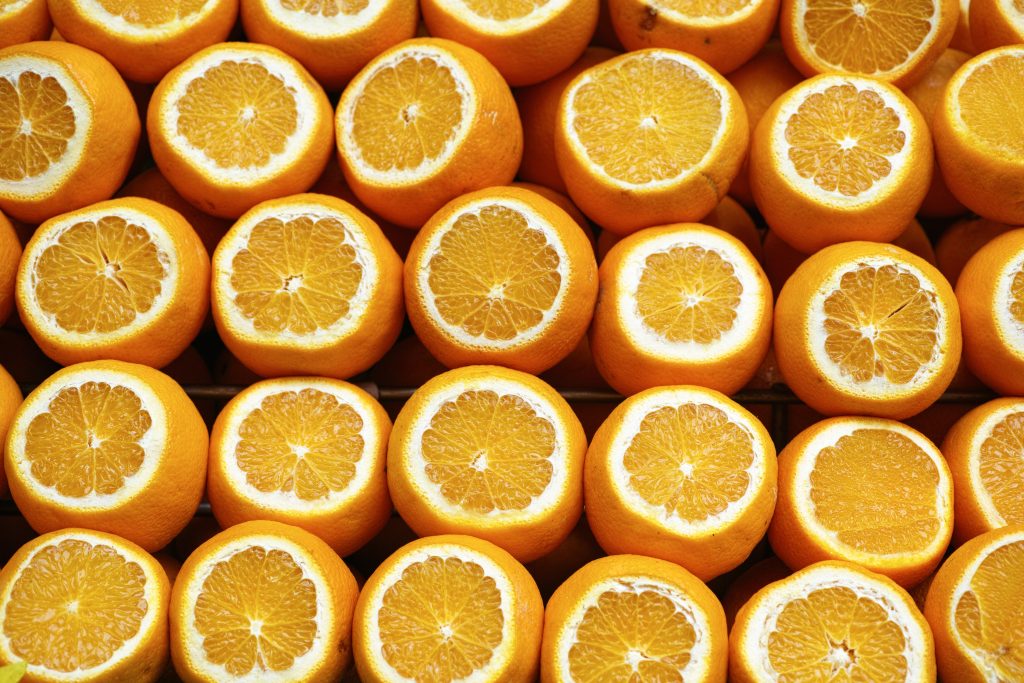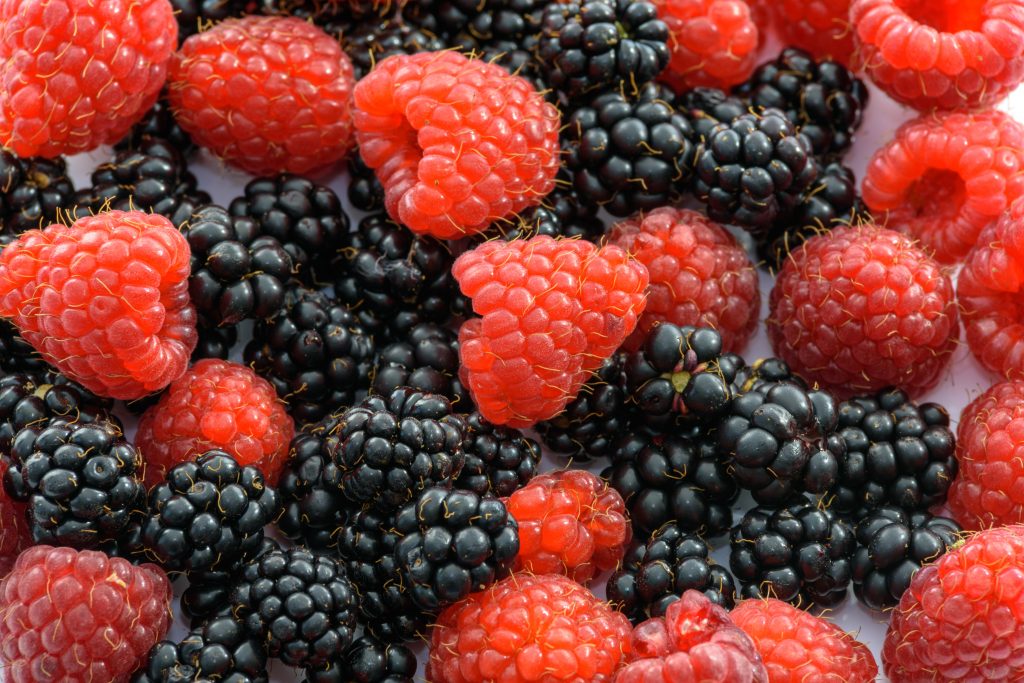What vitamin that instantly comes to your mind when you think of orange? In fact, we are about to see what does this amazing vitamin in oranges can do.

Vitamin C, also known as ascorbic acid is a water-soluble vitamin. It is naturally found in many food particularly fruits and vegetables. Our body is unable to synthesise Vitamin C thus it is crucial to obtain it through our daily diet.
Vitamin C can benefit our whole body in many ways. According to the American Dietetic Association, by having five to nive servings of fruits and vegetables daily, you will get a healthy dose of Vitamin C and other vitamins and minerals as well.
Where to obtain Vitamin C from?

Who said that oranges are the only food rich in Vitamin C? Indeed, almost all fruits and vegetables are considered a best source of Vitamin C. Therefore, you should stop spending your money in purchasing Vitamin C supplements and start consuming fruits and vegetables which are much cheaper.
Citrus fruits such as orange, lemon, grape and berries like raspberry and blueberry are rich in Vitamin C. Also, vegetables like broccoli, capsicum and cabbage have high Vitamin C content.
In case if you wish to know more of the major contributors of Vitamin C :-
citrus fruits, green peppers, strawberries, tomatoes, broccoli, potatoes, sweet potatoes, dark leafy greens, cantaloupe, papaya, mango, watermelon, brussels sprouts, cauliflower, cabbage, red peppers, raspberries, blueberries, winter squash, and pineapples
Vitamin C Deficiency
The most severe condition when it comes to Vitamin C deficiency is scurvy. Scurvy is characterised by collagen breakdown which then results in swollen and bleeding gum, muscle weakness and rashes on skin.
Scurvy affected English sailors back then in 1600s and 1700s. During their voyage, sailors had to eat fruits and vegetables as soon as they can because it is hard to keep them fresh. After many months in the sea, they would not have fruits and vegetables for most of the time thus this leads to Vitamin C deficiency among sailors.
Common symptoms of Vitamin C includes:
- Easy bruising
- Swollen gums
- Bleeding gums
- Slow wound healing
- Dry and splitting hair
- Dry red spots on the skin
- Rough, dry, scaly skin
- Nosebleeds
- Weakened immune system
- Possible weight gain because of slowed metabolism
- Swollen and painful joints
Health benefits of Vitamin C consumption.
The list goes on if we are looking into the health benefits of Vitamin C. In that case, get to know some of the benefits that will make you want for more citrus fruits and berries into your body.
1. Good immune system

Vitamin C boosts your immunity by ensuring your white blood cell functions better. White blood cells are responsible for protecting our body from infections and also keeping our immune system healthy.
It also helps in effective wound healing. Studies shows that Vitamin C is capable of reducing the wound healing time, proven to shorten the recovery period of any disease or condition.
2. Healthy skin and formation of collagen

A study from the American Journal of Clinical Nutrition found that women whose diet rich in Vitamin C has healthy, young and glowing skin. They strongly agree that Vitamin C is able to lower the risk of skin wrinkles and dryness.
Collagen is a protein that gives structure to bones, cartilage, muscle and blood vessels. Human with severe deficiency of vitamin C, cannot replace the collagens in their body and thus different types of tissue breaks down, leading to scurvy. Collagen is necessary for skin health and wound healing. In order to form collagen, Vitamin C is needed in abundance to facilitate collagen formation.
3. Increase your body’s absorption of iron

Good news to vegetarians, you may not want to worry about iron deficiency anymore. Vitamin C aids the body to better absorb non-heme iron which are the kind from plant foods such as beans, spinach and quinoa.
Vegetarians or vegans lack of iron intake as they do not consume red meats which are rich in iron. Iron is crucial in red blood cells formation and transporting oxygen throughout the body. Hence, low iron in body can cause iron deficiency anemia.
Worry no more, this can be tackled by combining vitamin C rich foods with iron-rich plant foods in the same meal. Vitamin C is able to convert plant-based iron into a form that is easily absorbed by the body.
Is it possible to minimize Vitamin C loss due to cooking?
Conversely, fruits and vegetables lose vitamin C when heated or stored for long periods of time. This loss of nutritional value is due to the destruction of vitamin C at high temperatures and the dispersion of nutrients into cooking water.

To get the most nutrients after cooking, consider steaming or microwaving vegetables for short periods of time to limit nutrient loss. Avoid soaking the vegetables in the liquid for too long. Another helpful tips is to boil the water before adding the vegetables which shortens the cooking time.
Strawberries, oranges, kiwis, grapefruit, tomatoes and capsicum are all examples of foods rich in vitamin C that can be eaten uncooked. This can ideally prevent Vitamin C loss and you are also likely to obtain all other nutrients from the food as well.
References
Moore, M. (2018). How Vitamin C Supports a Healthy Immune System. [online] Eatright.org. Available at: https://www.eatright.org/food/vitamins-and-supplements/types-of-vitamins-and-nutrients/how-vitamin-c-supports-a-healthy-immune-system [Accessed 17 Mar. 2019].
Link, R. (2018). Top 20 Foods that Can Boost Immunity & Fight Disease. [online] Dr. Axe. Available at: https://draxe.com/vitamin-c-foods/ [Accessed 18 Mar. 2019].
Cosgrove, M., Franco, O., Granger, S., Murray, P. and Mayes, A. (2007). Dietary nutrient intakes and skin-aging appearance among middle-aged American women. The American Journal of Clinical Nutrition, 86(4), pp.1225-1231.
Figueroa-Méndez, R., & Rivas-Arancibia, S. (2015). Vitamin C in Health and Disease: Its Role in the Metabolism of Cells and Redox State in the Brain. Frontiers in physiology, 6, 397. doi:10.3389/fphys.2015.00397
Crisan, Diana et al. “The Role of Vitamin C in Pushing Back the Boundaries of Skin Aging: An Ultrasonographic Approach.” Clinical, Cosmetic and Investigational Dermatology 8 (2015): 463–470. PMC.
Wang, K., Jiang, H., Li, W., Qiang, M., Dong, T. and Li, H. (2018). Role of Vitamin C in Skin Diseases. Frontiers in Physiology, 9.